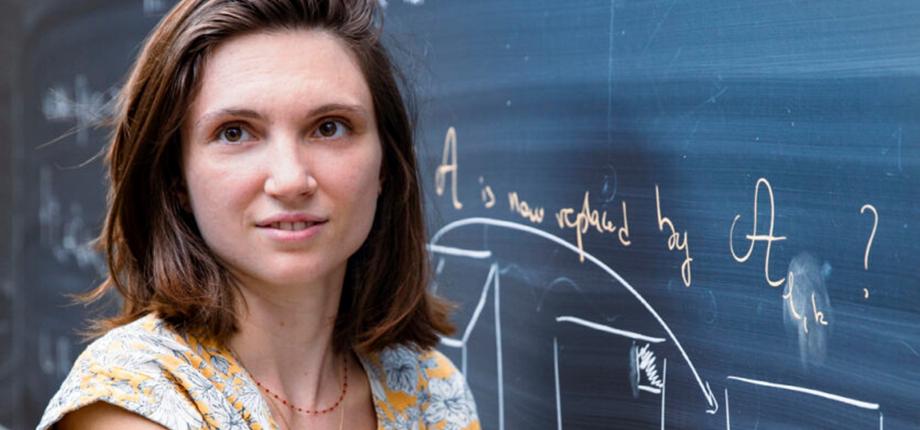L'Oréal-Unesco Jeunes Talents 2023 prize goes to Margaux Zaffran

As far back as she can remember, nothing predestined Margaux Zaffran for scientific research. "It was a series of significant circumstances that guided my choices", says the 3rd year PhD student at the Center for Applied Mathematics (CMAP : a joint research unit CNRS, Inria, École Polytechnique, Institut Polytechnique de Paris ). From her school teacher, who instilled in her a passion for particle physics and astrophysics, to her admission at ENSTA Paris, where she turned her attention to the field of energy, then to the teaching assistant who made her aware of statistics - "they enable me to model faithfully the world around me and to understand it" - her career is rich in these encounters that forge a future.
The L'Oréal-Unesco Jeunes Talents France award she has just received confirms this promising trajectory and echoes her commitment to women in science. "I've often worked with high-school girls to instill in them a taste for science and to promote the role of women in this field. This prize can encourage women to overcome the self-censorship associated with the apprehension of working in a very male-dominated environment. Making science more feminine also means multiplying points of view and enriching exchanges", she emphasizes.
Reducing uncertainties
And the facts are there. On a day-to-day basis, Margaux Zaffran is committed to making her work socially useful. As part of her thesis, she is developing a method for assigning a reliability indicator to the prediction models used by electricity market players. She uses probabilistic reasoning to quantify the uncertainty surrounding the forecasts provided by these models.
"For example, I'm told that a megawatt-hour (MWh) of electricity will cost €92 at 6pm tomorrow. How sure can I be of this? Rather than a single prediction, I establish a region of confidence around this data. I then know that there's a 90% chance that on that date, the price per MWh will be between €88 and €100," explains the researcher. This view of the market is crucial for exchanges between energy producers and suppliers. It makes it possible to fine-tune electricity production, reduce storage and distribution costs, and ultimately, cut related carbon emissions.
A wide range of applications
The method can be transposed to a wide range of fields, and will shortly be tested in medicine (in collaboration with Traumabase, a French trauma observatory collecting data from severely traumatized patients for health and scientific purposes). "The aim will be to reliably assess the risk of hemorrhagic shock when transferring an accident patient to hospital by ambulance. The data captured in real time will result in a confidence indicator that will determine, for example, whether it is appropriate to thaw a blood bag or prepare specific equipment and resources. This is an asset in terms of inventory management and improving patients' chances of survival", concludes the young woman whose work will never be far from our everyday lives.













